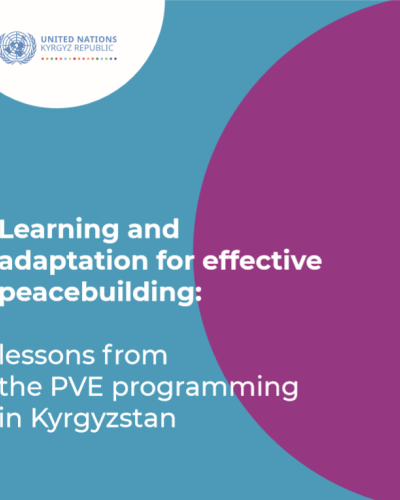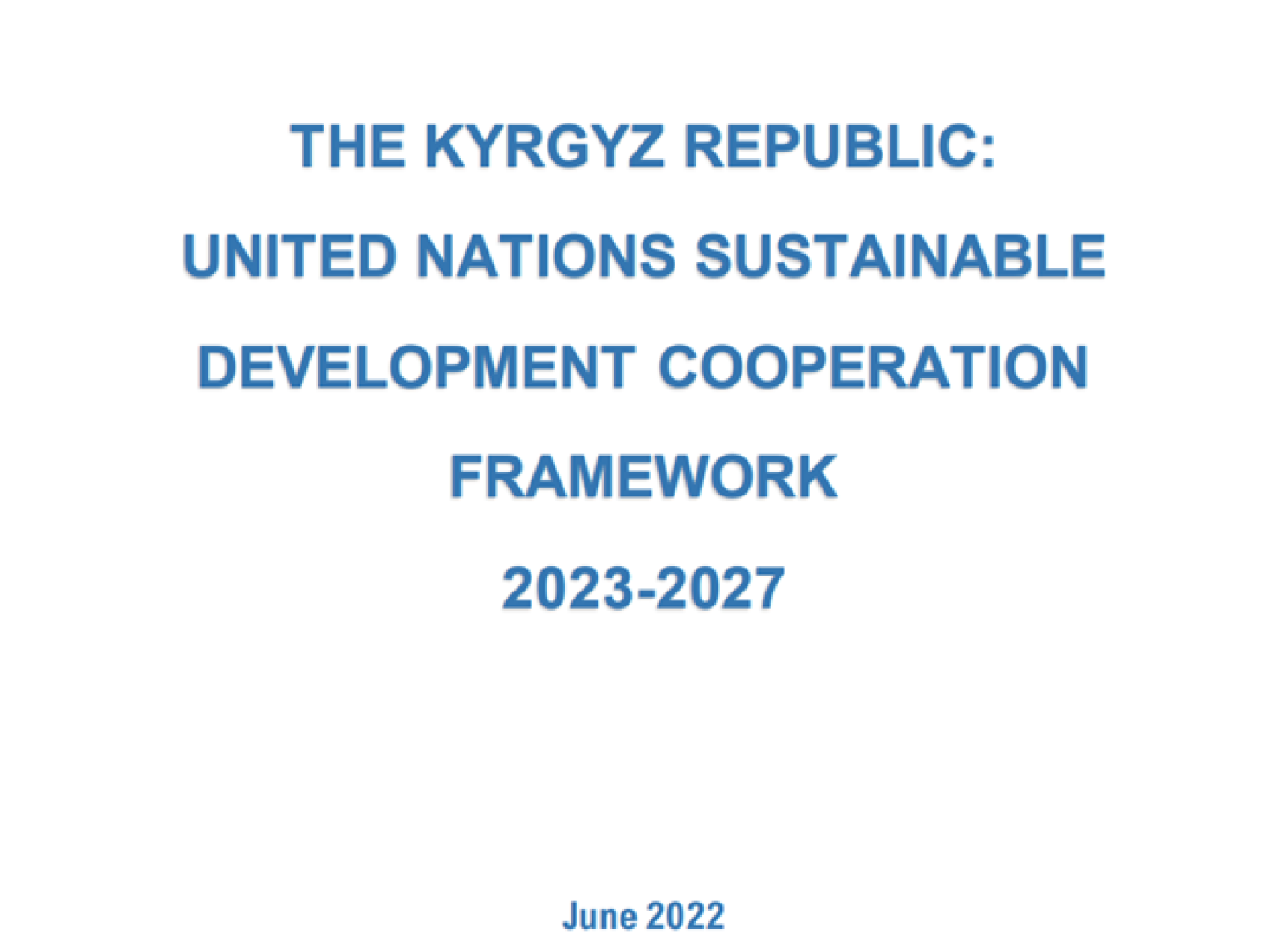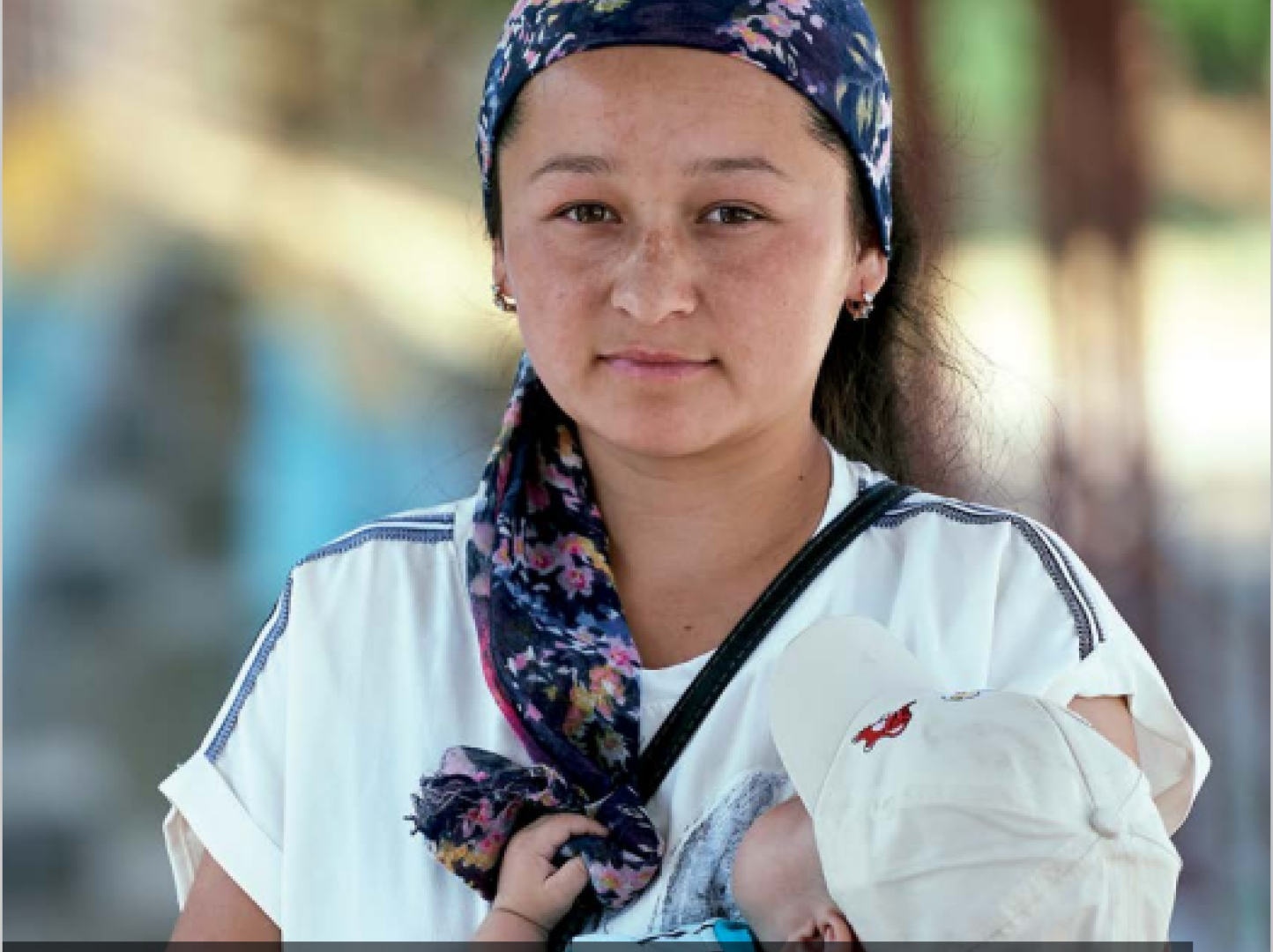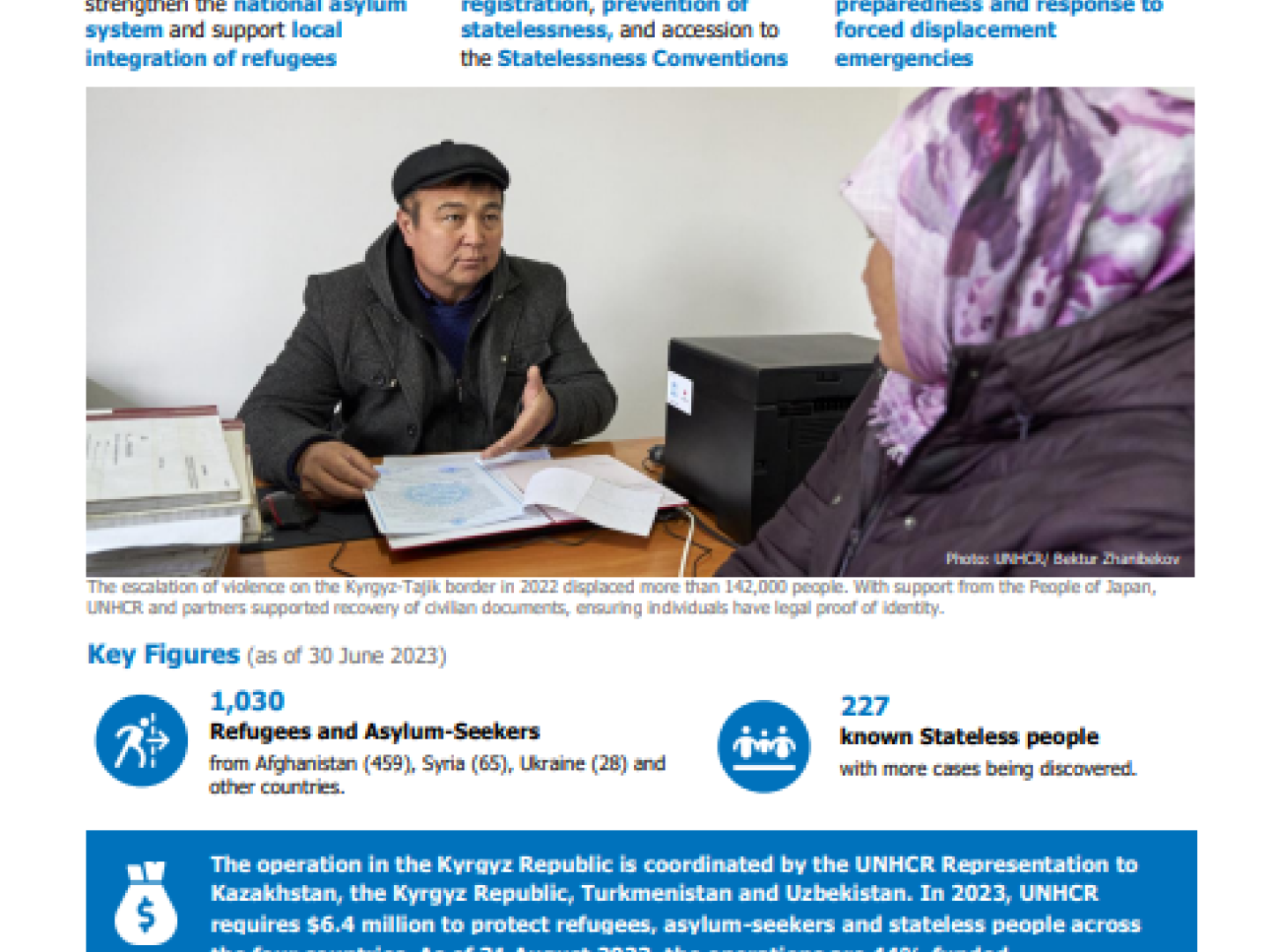Learning and Adaptation for Effective Peacebuilding: Lessons from the PVE Programming in Kyrgyzstan

In 2018, the Secretariat of the United Nations Peacebuilding Fund (PBF) launched a three-year program on preventing violence extremism (PVE). The program consisted of three projects (here also referred to as «outcomes»), implemented by six recipient UN organisations (RUNOs). These included UNDP, UNODC, UN Women, UNICEF, UNFPA and OHCHR.
The report consists of four parts. The first section, below, sets out the broader context of the L&A approach in the PVE program in Kyrgyzstan. It also summarises key activities held as part of the implementation of the L&A strategy. Next section reviews the most significant opportunities that the RUNOs and implementing partners saw in the L&A approach. The third section turns to challenges encountered and examines the kinds of problems reported and their underlying factors. The final section offers several recommendations to improve the application and strengthen the impact of L&A in future programs.
UN Resident Coordinator Ozonnia Ojielo:
Uncertainty around development paths and approaches challenge us to continuously revisit our assumptions and to constantly learn and adopt new approaches that enhance the impact of our work. The United Nations as a learning organization will question whether the programmatic solutions and approaches we apply are adequate and effective in an ever changing environment. These doubts are especially true in peacebuilding, where attribution is difficult, effectiveness is hard to measure (“how to measure something that was prevented from happening”), interventions are limited in scale and focused on specific priorities. Therefore, our prevention assumptions need to be continuously revised and take into consideration the shifting development and political landscape. It is because of this imperative that we decided to develop, in cooperation with PeaceNexus, a learning and adaption strategy and to embark on continuous learning and adaptation exercises for the PBF portfolio in Kyrgyzstan which were aimed to affirm, reconfirm, or undermine, our assumptions and approaches. From the early stages of our prevention of violent extremism (PVE) programme, we were confronted with contradictory or insufficient scientific evidence on causal factors of the phenomenon, and of appropriate mechanisms to mitigate or eliminate the roots of violent extremism in Kyrgyzstan’s communities. We also wanted to overcome the rigidity of the programming, in which Agencies, challenged by the duality of agency specific programming, management and reporting approaches and the expectations of the PBF for flexibility, integrated, coherent and coordinated approaches may not be flexible enough to react to new data, evolving country policies and community-specific context. As the report shows, the exercise worked better in some aspects, and less in others, and there are innovative solutions the UN should try to apply with regard to programmatic focus, coordination and project management. We hope this report will contribute to UN-wide discussion on effective peacebuilding programming broadly beyond the immediate focus of PVE which informed our approach. My colleagues and I stand ready to further share our experience."




